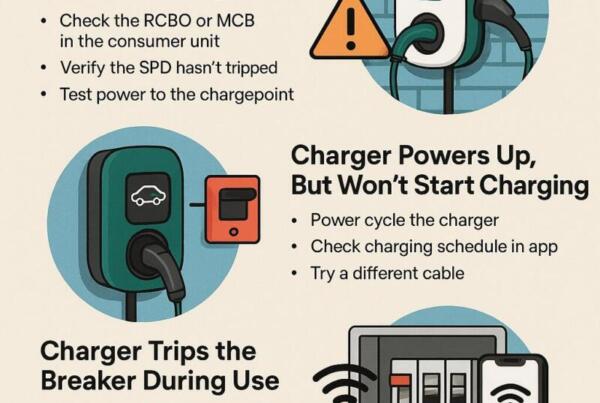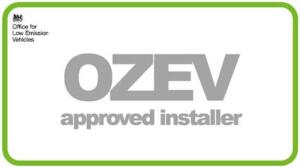Preparing for Winter: How to Safeguard Your Electrical System
As winter approaches, it’s important to prepare your home for the challenges posed by cold weather. In the UK, harsh winter conditions can put a strain on your electrical system, potentially leading to outages, fires, or costly repairs. By taking a few proactive steps, you can safeguard your electrical system and ensure your home remains warm, safe, and energy-efficient throughout the winter months.
Why Winter Electrical Maintenance Matters
The colder months bring higher electricity demand for heating, lighting, and other essentials, and extreme weather like snow and storms can add further strain to your electrical system. Winter electrical issues—such as overloading circuits, faulty wiring, or even fire hazards—are more common than many realise. By conducting routine electrical maintenance, you can avoid major disruptions and ensure your home remains safe and efficient during the winter season.
1. Inspect and Upgrade Your Heating System
Heating systems are often under increased stress during the winter, leading to higher energy consumption. Older systems, particularly electric heaters or heat pumps, may not be efficient enough to keep your home warm. Here’s how to ensure your heating system is winter-ready:
- Check wiring and connections: Inspect all wiring connected to your heating system for damage or wear. Frayed wires can lead to malfunctions or fire hazards.
- Consider upgrading: If your heating system is outdated, an upgrade to a more energy-efficient model (e.g., underfloor heating or infrared panels) can reduce energy costs and provide more consistent warmth.
- Install a programmable thermostat: A smart thermostat allows you to manage your home’s temperature efficiently. Set it to lower the temperature when you’re asleep or away to save energy.
2. Test Your Circuit Breakers and RCDs
With the increase in electricity demand, it’s essential to ensure your electrical system can handle the load. Faulty circuit breakers or residual current devices (RCDs) can cause power outages or pose a safety risk.
- Test your RCDs: Press the “test” button on your RCDs to ensure they function properly. If the device does not trip, it may need replacement or repair.
- Check circuit breakers: If your circuit breakers frequently trip, this could be a sign of overload or a faulty circuit. Try to balance the load across different circuits. If the problem persists, consult an electrician for further inspection.
3. Inspect Outdoor Electrical Installations
Outdoor electrical components such as garden lights, sockets, and extension cables are vulnerable to winter conditions. Moisture and freezing temperatures can cause severe damage and increase the risk of electrical faults.
- Inspect outdoor lighting and sockets: Ensure that all outdoor equipment is rated for outdoor use and properly sealed against moisture. Replace any damaged or exposed cables.
- Check for corrosion: Winter weather can cause metal parts to corrode. Inspect sockets and fittings, and replace any corroded items.
- Consider energy-efficient LED lights: LED lights use less power, are more resistant to the cold, and generate less heat, making them ideal for winter use.
4. Insulate Your Home
Proper insulation is key to reducing your energy usage and ensuring your heating system isn’t overworked. Heat loss can force your heating system to consume more electricity, leading to higher bills and added stress on your electrical system.
- Seal gaps and draughts: Check around doors, windows, and other areas where cold air might enter. Use draught excluders or weather stripping to keep warm air inside.
- Insulate lofts and walls: Proper insulation in your loft and walls can help maintain a consistent temperature inside your home, reducing the demand on your heating system.
5. Monitor Electrical Appliances
The winter months often mean using more electrical appliances such as space heaters, dehumidifiers, and festive lighting. It’s crucial to ensure that these devices are used safely to avoid overload or electrical fires.
- Inspect appliance cords: Before use, check appliance cords for any fraying or damage. Faulty cords can lead to electrical shocks or fires.
- Avoid overloading sockets: When using multiple appliances, avoid overloading outlets. Use extension leads with built-in surge protectors and never daisy-chain extension cords.
- Use energy-efficient appliances: Consider upgrading to newer, energy-efficient appliances that consume less power, especially for high-demand devices like space heaters.
6. Prepare for Power Cuts
Winter storms and power outages are more common during the colder months. It’s important to be prepared to ensure your home remains safe, even if the power goes out.
- Invest in surge protectors: Power surges from outages can damage sensitive electronics. Use surge protectors to protect valuable equipment.
- Have backup lighting and heating: Keep battery-powered or rechargeable torches and heaters in easy-to-access places.
- Install a backup generator: For longer outages, a generator can keep essential systems running. Be sure to have it installed and tested by a professional.
7. Schedule a Professional Electrical Inspection
Before winter sets in, schedule a professional inspection to ensure that your electrical system is in top shape. This is especially important for older homes or if you’ve experienced any electrical issues in the past.
- Identify hidden problems: A professional electrician can identify issues such as outdated wiring or worn circuits that may not be obvious to the homeowner.
- Ensure safety compliance: UK homes must meet strict electrical safety standards. An inspection will ensure your system is compliant, reducing the risk of electrical hazards.
- Fix problems before they escalate: Addressing minor issues now can save you from costly repairs down the road.
8. Protect Your Pipes from Freezing
While freezing pipes may seem unrelated to your electrical system, water damage from burst pipes can impact your wiring and lead to electrical hazards.
- Use pipe insulation: Insulate exposed pipes, especially in areas like lofts, basements, and garages.
- Keep heating on at low levels: Even if you’re away, set the thermostat to a low temperature to prevent pipes from freezing.
Conclusion
Taking steps to safeguard your electrical system before winter is crucial for maintaining a safe, warm, and energy-efficient home. From inspecting heating systems and circuit breakers to ensuring outdoor installations are ready for winter weather, these preventative measures will help you avoid electrical problems and costly repairs. Schedule a professional inspection, take care of small issues now, and you’ll be well-prepared to face the colder months with peace of mind.
Frequently Asked Questions
1. How often should I have my electrical system inspected?
It’s recommended to have your electrical system inspected at least every 5 to 10 years, or more frequently if you notice any issues or if your home is older.
2. What should I do if I experience frequent power outages in winter?
Frequent power outages could indicate underlying electrical problems. Contact a qualified electrician to diagnose the issue and assess your electrical system for necessary upgrades.
3. Are there any specific winter safety tips for using space heaters?
Always place space heaters on flat surfaces away from flammable materials, never leave them unattended, and ensure they have safety features like automatic shut-off switches.











